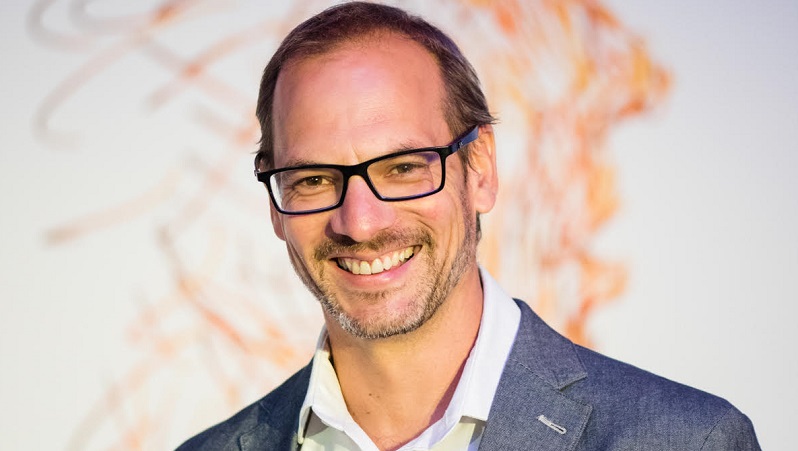South Africa’s esports scene is set for a major showdown as Hyprop and MTN introduce SHIFT COD, a Call of Duty tournament forming part…
Why I invest in teams over single founders – venture capitalist [Q&A]

You have a great idea, now you want to get funding for your startup. Do VCs prefer investing in teams or in single founder companies?
For venture capitalist and co-founder of Knife Capital Keet van Zyl the choice when it comes to investing in a startup often comes down to a startup with a team as opposed to single-founder company.
Over the 12 years of Knife Capital’s history — all the deals that the VC has concluded have had co-founders.
Do VCs prefer to invest in a team or in a single founder, to take your idea to market?
“The fact that there is more than one founder means that they convinced each other of the idea — and closed their first important sale,” says Van Zyl.
In this Q&A he tells Ventureburn more about why teams matter, what qualities turn him off a startup and when he would consider investing in a single-founder company.
Why do you prefer entrepreneur teams as opposed to single-founder companies?
Basically a lot of what an entrepreneur is all about is selling — to customers, investors, partnerships. The fact that there is more than one founder means that they convinced each other of the idea — and closed their first important sale.
Knife Capital typically invests in later stage scale-up companies for expansion as opposed to very early-stage startups. And getting a company off the ground is hard. Doing it alone is admirable. But you need a few people you can trust with a vested interest to bounce things off and help shape the pivots and sense-check assumptions.
Would you make an exception and invest in a single-founder company?
Sure. If he or she has built a credible management team or mentors or advisors around them.
What’s an example of why team-entrepreneurs are important?
Well for one — Knife Capital was built by (fellow partners) Eben van Heerden, Andrea Bohmert and I. Not any one of us could have done it alone.
There were dark times when any one of us thought it may be time to give it up, but then the others were strong and pulled the team back. When we needed it most new partners like Bob Skinstad (former Springbok rugby player — Ed) entered, and took our company into unexpected and exciting directions.
Mutual trust and a strong company culture are magic ingredients that are difficult to define. But people know when it is present.
What’s an example of investing in a single entrepreneur and how this was successful?
Thinking back to all the VC deals we have done over the past 12 years all of them have had co-founders. But never say never.
What qualities do you look for in a startup?
- A solid investment case – This comprises a good product or service with a competitive advantage, a large addressable market for that product, a strong management team, a scalable business model, funding to accelerate growth and an achievable realisation strategy.
- Awesome people – Startup investment is a long journey to success and we feel that we may as well embark on that journey with amazing people.
- Strong culture – The company culture needs to be solid in order to celebrate the successes as well as survive the setbacks.
- Execution capabilities – The value of an idea without execution capabilities is zero. So, we look for the ability to execute.
- Proven traction – There needs to be some element of momentum that can be demonstrated or quantified.
What qualities turn you off a startup, entrepreneur?
Usually it’s questionable ethics, lack of execution ability and not being able to constructively internalise and act on advice.
But (above all) Knife Capital’s number one red flag is a culture clash. Either between us as investors and the entrepreneurs, or subtle politics within the entrepreneurial team.
We’ve learnt the hard way that the one thing that you can’t fix with money is a toxic corporate culture. Most other fundamental business gaps can be closed with enough investment behind it.
Knife Capital has an internal [subjective] measure for assessing corporate culture in companies called the “Speed of Climbing Stairs Index”. The theory is that there is a direct correlation between staff morale and corporate culture, and the speed at which employees will climb a proverbial staircase at the office. If it is not fast enough, we will not invest.
Other Red Flags include questionable ethics, lack of product or market fit, cash-flow management issues and entrepreneurs betting on a product as opposed to building a multi-product sustainable business.
What are some examples of where you have been wrong about these qualities?
There have been examples where entrepreneurs made a huge success using “grey areas” and questionable ethics. By investing in them we could have been part of it, but we don’t really see that as being wrong.
Naturally we have also rejected a few great businesses through the years because of not seeing the product or market fit — who then went on to prove us wrong. Which is fantastic for them and we missed out.
Are there any tests you use to weed out the good ones from bad ones?
The very bad ones are easy to weed out — based on their unprofessional approach, lack of market knowledge and naive valuation expectations.
Good investment decisions are not made by simply ticking the due diligence boxes. It is the more intangible things that tell you if an investment will be successful. So, we always have a “non-quantifiable” slide in our investment committee presentations. Of the interesting things we picked up but couldn’t quite place.
A good idea is not necessarily a good company; and a good company is not necessarily a good investment.
So, experience in this game counts for a lot. You need to combine knowledge and networks and funding. Hence the value proposition of KNF Ventures — our Section 12J company.
What advice do you have for entrepreneurs looking to approach a VC or raise capital?
Get introduced via the VC’s network. The largest deal origination source of startup funding in South Africa come through warm referrals. It is simply not good enough to find the email address of a venture capitalist and send through a cold email expecting a positive outcome.
Study the investment mandates of potential funders, build an investor universe of preferred partners and do some homework to figure out a way to get referred.
Other than this:
- Have a simple summary of the business handy
- Refine your pitch deck
- Populate your data room
- Build a granular financial model with sensible assumptions and projections
- Understand the company valuation
- Be responsive on information requests.
- Do your due diligence on the funder
- Keep in touch and build a relationship
Featured image: Knife Capital partner Keet van Zyl (Supplied)

